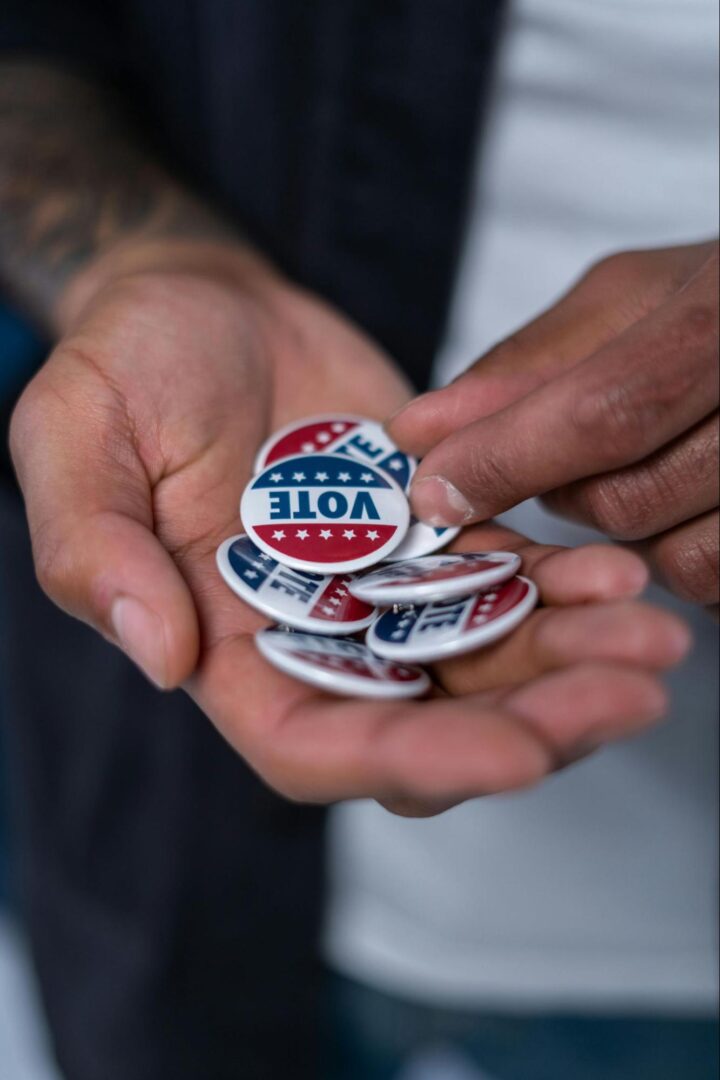The Importance of Voting: A Public Health Perspective
- 4 min. read ▪ Published
Why Voting Matters for Public Health
At Berkeley Public Health, we know that voting is not just a civic duty; it is a critical component of public health. In 2023, voter participation was included as a ‘core objective’ in Healthy People 2030 – our national goals to promote health and well-being. This metric is getting worse. Between 2018 and 2022 voter participation declined from 53.4 to 52.2 percent.
Through voting people can contribute to decisions that affect their communities including health equity, access to healthcare, and overall well-being. Here are some key resources that highlight the connection between voting and public health:
- Healthy People 2030: Voting Participation objective
- Voting is Critical to the Pursuit of Health Equity by Jeanne F. Ayers, Gnora Mahs, and Anthony Iton, Health Affairs
- Why and How Public Health Should Promote Voting and Voter Participation by Jeanne F. Ayers, and Gnora Mahs, the Journal of Public Health Management and Practice
- Voting Rights as a Key Political Determinant of Health, Then and Now by Marian Moser Jones, American Journal of Public Health
- Voting is Public Health by the Association for Schools and Programs of Public Health (ASPPH)
- Healthy Democracy Healthy People (HDHP), a nonpartisan initiative of major public health and civic organizations, which works to promote civic and voter participation
How to Register to Vote and General Election Information
 Ensuring you are registered to vote and have the necessary information for upcoming elections is crucial. In California, the deadline to register for the election is Monday, October 21, 2024, but other states may have earlier deadlines. California students can easily register to vote at California Student Vote. Employees can register via the California online voter registration portal. More resources can be found on the Berkeley Library Go Bears, Go Vote! Voter Information page.
Ensuring you are registered to vote and have the necessary information for upcoming elections is crucial. In California, the deadline to register for the election is Monday, October 21, 2024, but other states may have earlier deadlines. California students can easily register to vote at California Student Vote. Employees can register via the California online voter registration portal. More resources can be found on the Berkeley Library Go Bears, Go Vote! Voter Information page.
If you are registering in another state, go to vote.gov and select your state or territory to begin.
Encourage Others to Register and Vote
Your voice matters, and so does the voice of your community. Here are some nonpartisan initiatives to help encourage voter registration and participation:
- When We All Vote: A national, nonpartisan initiative aimed at increasing participation in every election.
- Thrive Through Civic Health: We Will Vote (WWV): A strategic action led by Civic Health Alliance, Healthy Democracy Healthy People, and Vot-ER to improve population health through civic participation.
- Healthy Democracy Campaign: An annual nonpartisan voter registration competition among healthcare education programs.
- Fanout: Earn entries for prize drawings by encouraging friends to check their voter registration and create a voting plan.
Call to Action
- Stay Informed: Explore the resources provided to understand the connection between voting and public health.
- Register to Vote: Make sure you are registered and have a voting plan in place.
- Encourage Your Network: Share these resources and use the tools here to encourage your friends, family, and colleagues to register and vote.
Together, we can make a difference in our communities and promote a healthier, more equitable society through civic engagement.
Be on the lookout for other opportunities to engage in these efforts between now and election day. If you have questions or comments about this work, please contact the Berkeley Public Health Social Impact Team at BPHsocialimpact@berkeley.edu.
The University of California strongly supports public and civic engagement by members of the university community, in both their professional and personal capacities. At the same time, activities that are political in nature (e.g., promoting a particular candidate, campaign or ballot initiative) cannot be conducted during university employee work hours or using university resources. Registered student organizations may sponsor political events if university resources are not used, facility use fees are paid, and the event complies with the university’s major events policy. Please see these guidelines for additional information.